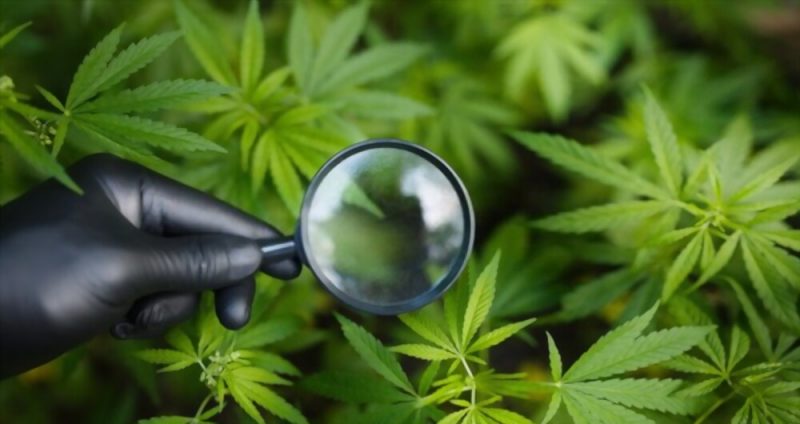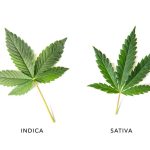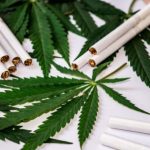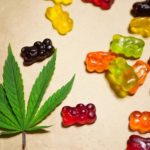🔥 Website for Sale - Contact Us
CBD is officially found everywhere across the United States. 64% of Americans are informed about CBD, while 33% of adults have used it once or more.
Research suggests Cannabidiol (CBD) helps with a vast array of medical conditions from vertigo symptoms, menstrual cramps, and even insomnia.
What Is CBD?
Is CBD a wonder drug or is it just snake oil? Cannabidiol (CBD) is a compound in both hemp and marijuana Sativa plants.
While the cannabis plant contains over 120 phytocannabinoids, Delta-9-tetrahydrocannabinol (THC) and Cannabidiol (CBD) are the most researched compounds in cannabis plants.
The official heath benefits of CBD are still inconclusive because of the lack of controlled studies. However, there is strong evidence that supports its recent popularity buzz.
This article will explore CBD 101 basics like heath benefits, potentially deadly side effects, and FDA findings.
What Does CBD Do? (Health Benefits of CBD)
CBD advertisers and activists calm that it helps alleviate anxiety, depression, particular sleep disorder symptoms, and post-traumatic stress disorder.
But does the science support these claims?

Studies in the effects of cannabis only really started after the legalization of hemp cultivation in 2018.
In the U.S. prohibition period, independent laboratories found it extremely difficult to get a grand of sufficient quantities of cannabis to run trails.
Essential, halting all cannabis technology advances for 80 years.
However, science is desperately trying to catch up with the wonder cure claims.
For me it is not a question of whether CBD works, it is how effective CBD is in treating particular ailments.
I started to use CBD products since my motorbike accident 6+ years ago to manage pain and anxiety.
What I can testify out of my experience is that CBD has the ability to elevate a particular type of pain and anxiety symptoms. Another remarkable thing I noticed was my sleep pattern improved.
My bad sleep patterns developed because of free-floating stress which CBD helps to alleviate.
A 2018 study found that 62% of CBD users began to use CBD for medical reasons.
The top medical reasons are pain, anxiety, and depression. 36% of participants reported that CBD on its own treats their medical condition very well, while 4.3% reported it does not work.
CBD is one out of proximity 120 phytocannabinoids found in Sativa cannabis.
Evidence supports that CBD is more effective when consumed with the rest of the phytocannabinoids found in the cannabis plant.
Full-spectrum CBD extract contains all the natural compounds in hemp cannabis as well as the legal THC (0.3%) trace amount.
### Notice attention block ###
For Adults, 0.3% THC is just enough to help relax your body. It will not get you high.
### Notice attention block ###
Humans evolved for millions of years alongside cannabis plans which allowed time for the human body to develop our endocannabinoid systems (ECS).
Full-spectrum CBD oil extract is associated with an amazing therapeutic sensation that is commonly referred to as the “entourage effect”.
The “entourage effect” feeling can be best described as the cozy relaxed feeling after a hot shower.
However, the therapeutic feeling of full-spectrum CBD is strong enough to make your bed ready but is non-intoxicating.
During my bike accident recovery, I discovered that marijuana CBD extract had even greater soothing effects.
### Notice attention block ###
Hemp and marijuana CBD extract have entirely different therapeutic sensations.
### Notice attention block ###
Both plants are similar in compound structure with one difference.
Marijuana CBD oil extract contains 0.8% to 20% THC whereas hemp contains 0.3% or less.
For this reason, marijuana is more effective than hemp for particular medical problems because of its different compound levels.
Marijuana and hemp CBD extract is considered safe substance, but there are some potential risks.
If you are considering using CBD oil for the first time it is imperative that you understand the two major risk factors discussed in this article.
The current FDA position on hemp CBD

The federal government recognizes marijuana and hemp as the two types of cannabis plants from which CBD is extracted.
Marijuana is the more popular of the two CBD sources because of the high concentration of the sedative compound tetrahydrocannabinol (THC) that gets you high.
Marijuana is the most widely used drug in the United States with roughly 22.2 million users a month.
While marijuana is the most uses drug in the world, hemp is building popularity momentum in the United States with the end of prohibition laws in 2018.
Although hemp CBD oil is now legal countrywide, it is not regulated by the Food and Drug Administration (FDA) for safety because of the limited clinical trial.
However, the lack of clinical trials doesn’t deter people from buying CBD products from shops and gas stations.
An estimated 64 million Americans have used CBD products within the last 24 months with major market growth projections.
To date, only one CBD drug called Epidiolex has been approved by the FDA in 2018 for the treatment of rare epileptic disorders.
During the extensive Epidiolex clinical trials the FDA uncovered potential harmful side effects that can cause liver damage. However, the harmful side effect can be minimized with proper medical oversight.
Besides Epidiolex, no other CBD product or drug has been approved by the FDA as safe to consume. FDA approval is important to verify if CBD is an effective treatment for particular ailments.
Moreover, FDA regulation will offer a guideline or dose requirement for specific health conditions.
With all potent substances, getting the dose right is critical. One aspirin may be good for human health but digesting 20 tables at once can have serious implications.
The same applies to CBD products. Although CBD dose is not regulated officially by the FDA, overdose is a major cause of concern because of side effects.
The two most dangerous potential side effects of CBD oil

Although CBD has many potential side effects it is generally considered a safe substance even in higher doses.
It is also important to mention that the most dangerous side effects from CBD are usually caused by underlining health conditions.
The biggest cause of concern is that CBD interferes with certain medications which can lead to severe side effects.
A recent survey suggests that a large portion of the U.S. population takes one or more prescribed medications with CBD oil.
Drug interactions impact medication efficiency and can cause serious side effects.
The interference causes our body to absorb a concentrated dose of particular prescribed medications which can lead to overdose.
The most common known drugs that negatively interact with CBD are used to treat conditions like cholesterol, blood pressure, anxiety, and more.
Most of these medicines can have a disastrous outcome if you overdose.
Researchers found that CBD interferes with other drugs in the same way as grapefruit.
Grapefruit contains the compound furanocoumarin that interferes with over 85 known drugs.
The body uses an enzyme called CYP3A4, mostly found in the liver, to break down drugs and toxins.
Grapefruit interferes with the metabolization process and enables the drug or toxin to build a dangerous concentration in the bloodstream.
CBD has a similar negative effect on these drugs which are approximately 60% of medications on the market.
The second potential harmful side effect is caused by a shortage of global agricultural regulations.
While responsible CBD sellers verify their product purity by independent lab testing, much of the market is still doing shady snake oil salesman tactics.
With the lack of agricultural regulations in countries like China and Indian, heavy metal toxicity made its way into the CBD market in the United States.
Heavy metal toxicity in CBD is a consequence of using illegal pesticides or irrigating cannabis crops with polluted water.
In an unregulated industry, consumers often have no real knowledge of what dangerous poisons they consume.
### Notice attention block ###
Is CBD Addictive? While long-term heavy cannabis use is associated with an increased risk of dependence, CBD is regarded as a low abuse substance by multiple health organizations because of its non-intoxicating profile.
Furthermore, evidence suggests that CBD may aid in the withdrawal process with tobacco smoke and alcohol.
### Notice attention block ###
Takeaway:
There is plenty of evidence that suggests that CBD is useful with many different ailments, but thus far only one FDA-approved drug.
Although most heath benefit claims are not officially substantiated, many people experience amazing results from using CBD.
Cannabidiol is NOT the wonder cure for everyone like the marketing buzz makes us believe.
Nevertheless, CBD on its own is a powerful natural alternative that has the potential to replace many synthetic drugs. However, not one size fits all.
At the very least, cannabidiol (CBD) offers substitutes to individuals who don’t have many options.
But it is scientifically proven that CBD full spectrum provides more therapeutic effectiveness.
Out of experience dealing with chronic pain because of injury, I believe that cannabis has amazing healing properties and you should nock it because of common misconceptions.





